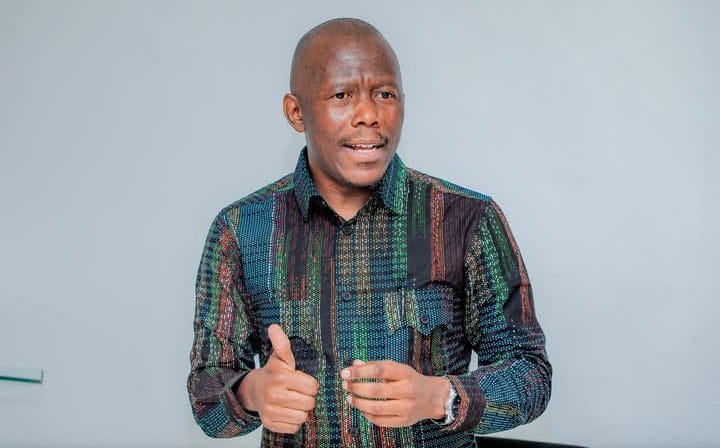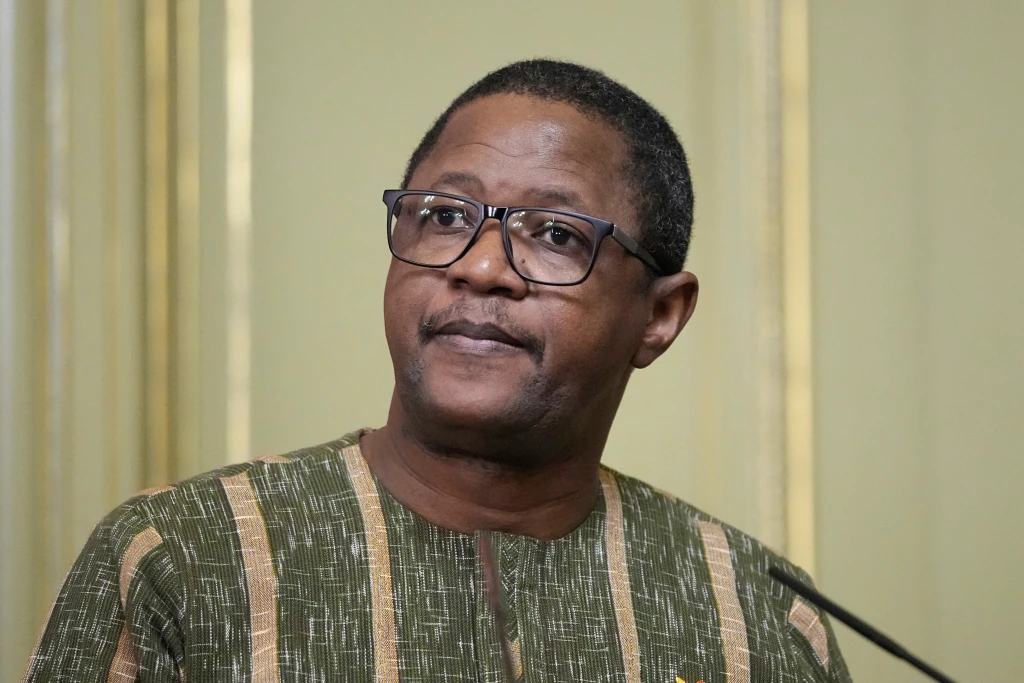
Tanzania’s former ambassador to Cuba, who went missing on October 6 is dead – and possibly assassinated – an international newspaper The Africa Report, claims.
However, the Tanzania government did not immediately respond to the allegations – if at all – lending credence to what the newspaper billed an “exclusive report.”
“Tanzanian military, political and security sources privy to ex-ambassador Humphrey Polepole’s abduction tell The Africa Report that he died shortly after from serious injuries he suffered when he was attacked,” the usually trustworthy newspaper said in an October 10, 2025 edition.
The high-profile abduction of Humphrey Polepole on October 6 in the capital Dar es Salaam, sent shockwaves across the country and the wider East African Community bloc, which has in recent years turned into a theatre of bizarre disappearances, abductions, extrajudicial killings and assassinations.
Scores of high profile personalities and frustrated youth that have been exerting pressure on governments in eastern Africa to institute economic, political and democratic reforms have become targets of abduction and disappearances as presidents of Tanzania, Kenya, Uganda and Rwanda resort to repressive tactics to hold onto power.
Tanzania goes to the polls on October 29 to elect presidents of Mainland (Tanganyika) and Islands (Zanzibar). However, the countdown to the polls has been marked with assassinations, detention of opposition – most notable being Chadema Party Leader Tundu Lissu – calculated to ensure the incumbent President Samia Suluhu Hassan does not face stiff competition.
Responding to fears that Polepole may have been assassinated by state intelligence or a parallel illegal outfit that is allegedly run by President Suluhu Hassan’s son Abdul Hafidh Ameir – who is also accused of being the architect and mastermind of abductions, arbitrary arrests, assassination and disappearances of his mother’s opponents – Amnesty International accused President Suluhu Hassan abuse of power and violation human rights.
Tanzanian police officers often complained about being stripped of their mandate by the president’s son who wields immense powers derived from proximity to power.
Interviewed recently by Tell Media, two Tanzanian journalists confirmed there are questions in the country about the controversial and unexplained close relationship between Abdul Hafidh Ameir and former President Jakaya Kikwete.
“Kikwete still lives in the State House (leading to rumours that Abdul may be his son). Kikwete controls President Suluhu Hassan and still runs state affairs. There are also questions about the unholy alliance between Kikwete and Abdul Hafidh Ameir. Tanzanians question why Kikwete still stays in the official residence of the sitting president,” one of the journalists said.
In the first week of October a video – allegedly of disgruntled military officers calling for the ouster of President Suluhu Hassan – circulated on social media, precipitating fears that a military takeover was imminent. The junior military officers urged top military command to remove Suluhu Hassan from power as a way of restoring the dignity of the East Africa nation once viewed as the beacon of peace and stability in a politically volatile region.
Intentional human rights organisation, Amnesty International, says in a report published on October 8, “Tanzanian authorities must immediately disclose the fate and whereabouts of a former Tanzanian ambassador to Cuba, Humphrey Polepole, who may have been forcibly disappeared. They must also ensure his safety and bring those responsible for his abduction and possible assault to justice through fair and transparent legal processes, Amnesty International said today.”
Amnesty International says it is deeply alarmed that Polepole might have been forcibly disappeared and possibly assaulted or killed.
“The Tanzanian government must put every effort into locating him and bringing him back to safety. They must hold his abductors accountable” the paper reports.
Humphrey Polepole’s family said they were alerted about a break-in on the morning of October 6, 2025 at the Dar es Salaam residence of the former diplomat and outspoken government critic. Upon arrival, they found the door broken, electrical wires cut, and a significant amount of blood at the scene. Videos and images shared by the family appear to corroborate these claims, showing clear signs of a violent struggle.
The incident comes less than three months after Polepole reported that his sister had been abducted from her home in Bahari Beach, Dar es Salaam, on July 17, 2025. She was beaten and later dumped back at her home the next day, in the night.
This case adds to a growing list of enforced disappearances and attacks on government critics in Tanzania, raising serious concerns about authoritarian practices in the country and increasing political repression ahead of Tanzania’s general elections, scheduled for 29 October 2025.
Far too many people have disappeared in Tanzania, over the recent years without any accountability.
Polepole, once a senior figure in the ruling Chama Cha Mapinduzi (CCM) party, resigned from his diplomatic post earlier in 2025 after publicly criticising the government for its disregard of justice, the rule of law, and constitutional principles.
Polepole’s family reported the incident to Mbezi Police Station, Dar es Salaam on October 6, and his lawyer filed a habeas corpus application in court on October 7, 2025. Family members told Amnesty International that during a police investigation into Polepole’s case, officers took several items from his home, including his printer and safe.
Police spokesperson David Misime said Polepole had been summoned to appear before the Directorate of Criminal Investigations over allegations made on social media but had failed to comply. Authorities say they are working to verify the authenticity of the abduction claims, according to Amnesty International.
Amnesty International notes that Tanzanian security forces have been repeatedly implicated in a pattern of enforced disappearances in the country. In June 2025, UN human rights experts called on the Tanzanian government to “immediately stop the enforced disappearance of political opponents, human rights defenders and journalists, as a tool of repression in the electoral context.”
Victims are often taken by unidentified individuals with the support or acquiescence of state officials, with authorities subsequently refusing to acknowledge their detention or disclose their fate or whereabouts – hallmarks of enforced disappearance under international law.
Among those still missing are Anthony Gabriel, Daniel Chonchorio, Deusdedith Soka, Dioniz Kipanya, Fakih Ali Salim, Frank Mbise, Jacob Mlay, Mdude Nyagali, Shadrack Chaula, Sinda Mseti, and Siza Mwita Keheta. Their continued disappearance underscores the urgent need for accountability and transparency from Tanzanian authorities.
- A Tell Media report






